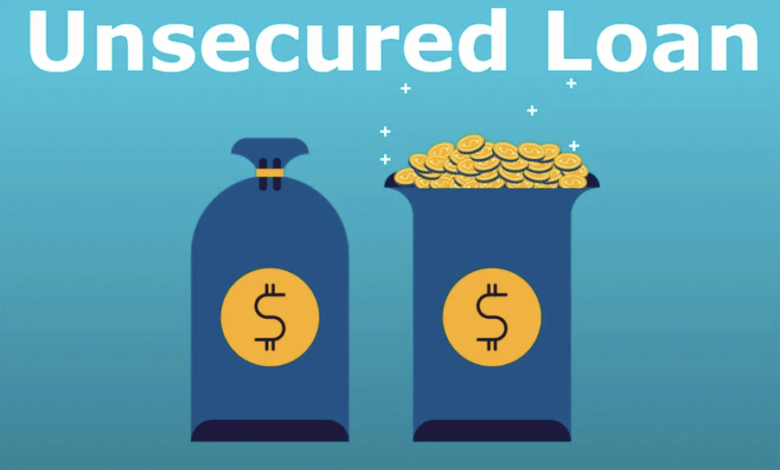what is an unsecured loan

An unsecured loan is a loan that is not backed by collateral. This means that if the borrower defaults on the loan, the lender cannot seize any assets to recoup their losses. Unsecured loans typically have higher interest rates than secured loans, because there is a greater risk that the lender will not be able to recoup their losses.
1. Unsecured Loans: Overview
An unsecured loan is a loan that is not backed by collateral. Collateral is an asset, such as a car, house, or savings account, that can be used to secure a loan. If you default on the loan, the lender can seize the collateral to repay the debt. An unsecured loan is not backed by collateral and is based solely on the borrower’s creditworthiness. Unsecured loans are also called signature loans or personal loans.
Unsecured loans are a good option for borrowers with good to excellent credit who need a loan but don’t have any collateral to put up for the loan. Unsecured loans tend to have higher interest rates than secured loans because they are riskier for lenders. The interest rate on an unsecured loan is also based on the borrower’s creditworthiness.
Some unsecured loans can be used for just about anything, while others have restrictions on how the loan can be used. For example, a personal loan can be used for anything from consolidating debt to paying for a wedding, while a student loan must be used for educational expenses.
2. What is an Unsecured Loan?
An unsecured loan is a loan that is not backed by collateral. Collateral is typically in the form of a home or car, but it can also be in the form of savings or investments. Unsecured loans are also known as signature loans or personal loans.
The biggest advantage of an unsecured loan is that it can be used for almost any purpose. The funds can be used to consolidate debt, make a large purchase, or even cover unexpected expenses.
Another advantage of an unsecured loan is that it does not require collateral. This means that you will not put your home or car at risk if you default on the loan.
The downside of an unsecured loan is that it typically has a higher interest rate than a secured loan. This is because the lender is taking on more risk by lending money to a borrower without any collateral.
3. How Unsecured Loans Work
An unsecured loan is a loan that is not backed by collateral. This means that if you default on the loan, the lender cannot take your property as payment. Unsecured loans are also called signature loans or personal loans.
How Unsecured Loans Work
The lender will assess your creditworthiness and then give you a loan based on your credit score. The interest rate on an unsecured loan is usually higher than a secured loan because there is more risk for the lender.
The repayment terms for an unsecured loan are usually shorter than a secured loan because the lender wants to minimize their risk. You will likely have to make payments every month, and the loan will be paid off within a few years.
If you default on an unsecured loan, the lender can take legal action against you. They can sue you and try to garnish your wages. If they are successful, they can get a judgment against you which will allow them to take your property.
4. The Benefits of Unsecured Loans
An unsecured loan is a type of loan that is not backed by any collateral. This means that the borrower does not have to put up any asset, such as a house or a car, as security for the loan. The main advantage of an unsecured loan is that it is easier to qualify for than a secured loan. This is because the lender does not have to worry about the borrower defaulting on the loan and losing the collateral.
Another advantage of an unsecured loan is that it can be used for almost any purpose. The borrower is not restricted to using the loan for a specific purpose, such as buying a car or a house. This flexibility can be helpful if the borrower needs the money for an emergency expense or for something else that they had not planned for.
5. The Risks of Unsecured Loans
When you’re in need of quick cash, you may be considering an unsecured loan. But before you sign on the dotted line, it’s important to understand the risks involved with this type of loan. Here are five risks to be aware of:
1. You Could Be Stuck With a High Interest Rate
If you have less-than-perfect credit, you may be offered an unsecured loan with a high interest rate. This can make it difficult to afford your monthly payments and may end up costing you more in the long run.
2. You May Have to Pay Origination Fees
Some lenders charge origination fees when you take out an unsecured loan. These fees can add up, and they’re often deducted from the loan amount before you receive the money.
3. You Could Be Hit With Late Fees
If you miss a payment or are late with a payment, you could be charged a late fee. These fees can add up quickly, and they can make it difficult to catch up on your payments.
4. Your Loan Could Be Sold to a Collection Agency
If you default on your loan, the lender may sell your loan to a collection agency. The collection agency will then try to collect the money you owe, and they may use aggressive tactics to do so.
5. Your Credit Score Could Suffer
If you miss payments or default on your loan, your credit score could suffer. This can make it difficult to get approved for loans in the future.
